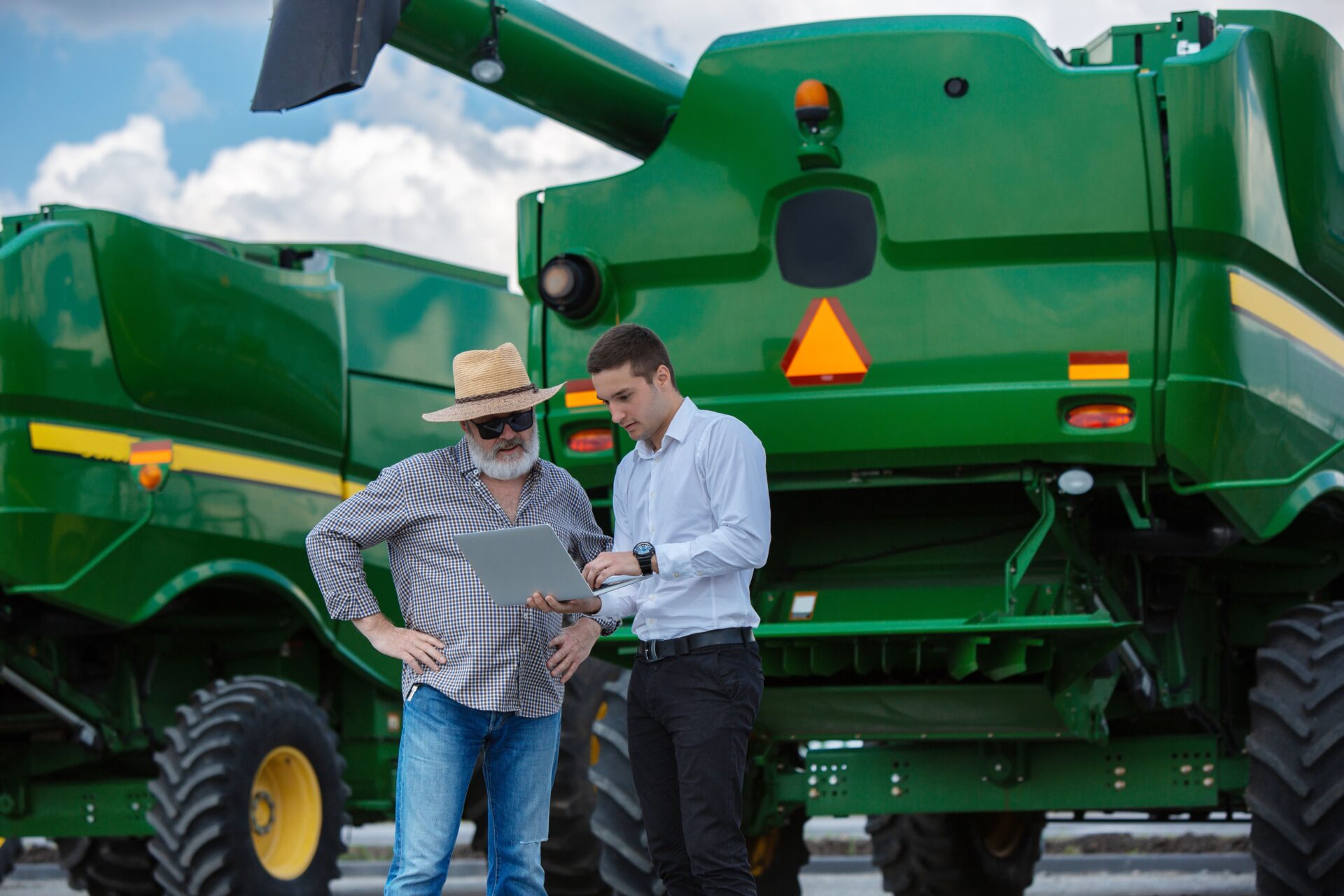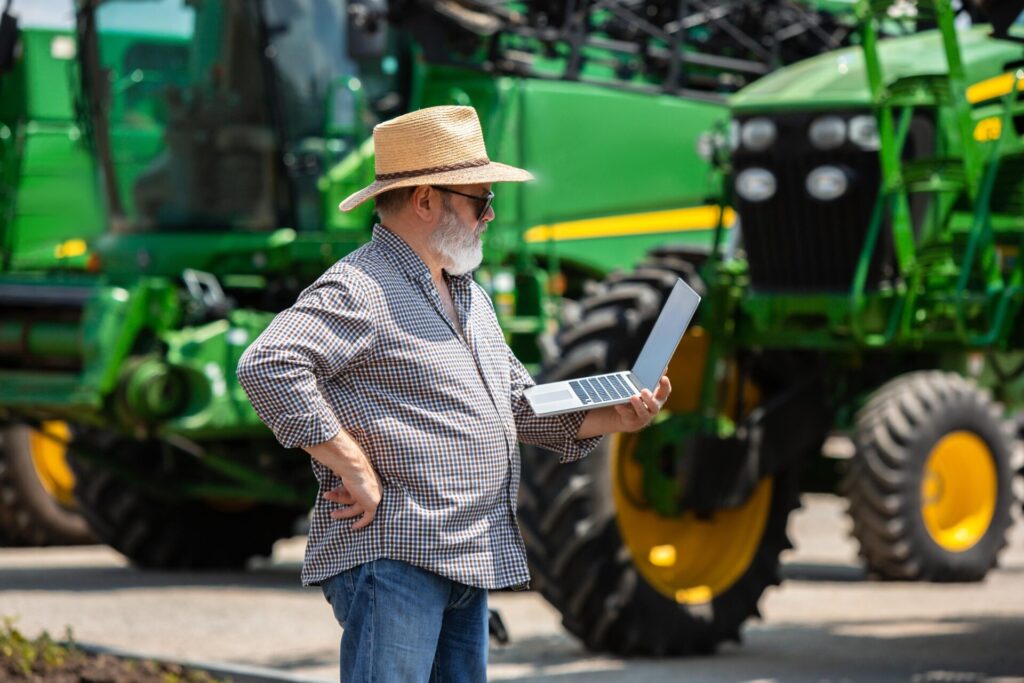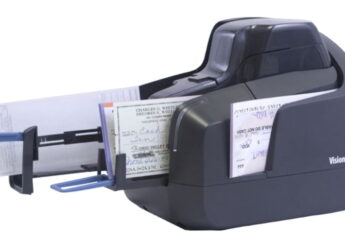Tractor Leasing vs. Financing: Which is Right for Your Farm?
by Abdul Aziz Mondal Business 13 August 2024

Farm equipment is a kind of investment. Amongst those, tractors are crucial for a day to day operation. It plays a massive part in operating a farm effectively.
To operate a farm properly, you not only need some dependable equipment, but you also need to make a sound financial decision to help you achieve both short and long-term benefits.
For farmers, acquiring new tractors is essential to maintaining productivity and efficiency. However, deciding between leasing and financing can be challenging. Each option has its own set of benefits and considerations.
Taking a lease on a tractor has been considered an alternative to purchasing a tractor, but recently, farmers have been considering the options again due to tight lending requirements.
The leasing and financing offer both pros and cons. Thus, it is necessary to understand the key points that can help you decide which one suits you.
In this article, we’ll compare tractor leasing and financing to help you determine which option is best for your farm.
Understanding Tractor Leasing

What is Tractor Leasing? With Tractor leasing, you can use a tractor for a specific time period while making regular lease payments. Once the lease term ends, you can return the tractor and extend the lease.
Other than that, you can also purchase the equipment at its residual value. To learn more, you can read Kubota f3890.
The tractor leasing falls into the asset finance category. It is a properly established range that helps you to acquire vehicles and equipment. Tractor leasing is almost similar to car leasing, which provides maximum flexibility and affordability.
Types of Leases:
– Operating Lease: A short-term lease where a specific leasing company retains ownership and often includes maintenance services.
– Finance Lease: A long-term lease similar to a purchase agreement, allowing you to have ownership of the tractor once your term is over. When it comes to financing a lease, you are the one responsible for maintaining the tractor.
The lease process is almost similar to buying all the equipment. When your lease term ends, you can make the purchase in return for a nominal amount. In this way, you gain the ultimate ownership while building equity.
Understanding Tractor Financing
What is Tractor Financing? Tractor financing involves obtaining a loan to purchase a tractor, spreading the cost over time through regular payments. At the end of the loan term, you own the tractor outright.
Types of Financing
– Bank Loans: Traditional loans with competitive interest rates and flexible repayment terms.
– Equipment Financing Companies: Specialized lenders offering tailored solutions for agricultural equipment.
– Dealer Financing: In-house financing options are provided by tractor dealers, often with promotional rates.
Benefits of Tractor Leasing
Lower Initial Costs: Leasing requires a smaller upfront payment compared to purchasing, preserving your working capital.
Access to Latest Technology: Leasing allows you to use the newest models with advanced technology, enhancing productivity.
Flexibility: Once the lease term ends, you have the option to return the tractor, renew the lease, or purchase the equipment.
Maintenance Included: Many leases include maintenance packages, reducing the hassle and cost of upkeep.
Tax Advantages: Lease payments are often tax-deductible as a business expense, lowering your taxable income.
Benefits of Tractor Financing
Ownership Potential: A finance lease allows you to own the tractor once your lease ends. It offers a path to full ownership of the tractor.
Fixed Monthly Payments: With fixed monthly payments, your budgeting becomes more accessible. It also helps you with predictability to further manage the total financing of your firm.
Tax Benefits: Interest paid on loans is tax-deductible. It can reduce the overall burden on taxes.
Equity Building: As you make payments, you build equity in the tractor, increasing your farm’s asset base.
High-Value Equipment: Financing allows you to have high-value and technologically advanced tractors, which are often unaffordable by the farmers.
Considerations for Leasing
End of Lease Options: At the end of the lease term, you may need to return the tractor, which could disrupt operations if not planned for.
Total Cost: Leasing can sometimes be more expensive in the long run compared to purchasing, especially if you lease continuously.
Usage Limits: Leases may come with usage limits or mileage caps, potentially restricting your operations.
Considerations for Financing
Higher Initial Costs: Financing usually requires a larger down payment compared to leasing.
Maintenance Responsibility: As the owner, you are responsible for all maintenance and repair costs.
Credit Requirements: Financing typically requires a good credit score. It may involve more stringent approval processes.
Making the Right Choice
Assess Your Needs: Evaluate your farm’s operational needs, budget, and financial health to determine which option aligns best with your goals.
Consider Future Plans: Think about your long-term plans. If you anticipate needing the latest technology or frequently upgrading equipment, leasing may be more suitable.
Budget for Costs: Ensure that your budget can allow for the monthly payments for either leasing or financing without putting any strain on your cash flow.
Seek Professional Advice: Consult with financial advisors or equipment financing specialists to explore your options and find the best solution for your farm.
Final Thoughts
It requires a lot of thinking about leasing or financing a tractor. It is a more complex area for the farmers. Farming often requires a few critical pieces of machinery. While on the other hand, it has become essential to take advantage of new farm equipment.
Thus, it becomes necessary to make a sound financing decision that can bring short and long-term benefits.
Deciding between leasing and financing a tractor depends on your farm’s specific needs and financial situation. Leasing offers flexibility and lower initial costs, while financing provides ownership and long-term value.
You can make the best decision to support your farm’s productivity and growth once you carefully evaluate all the options and plan accordingly.
Read More…



































































































